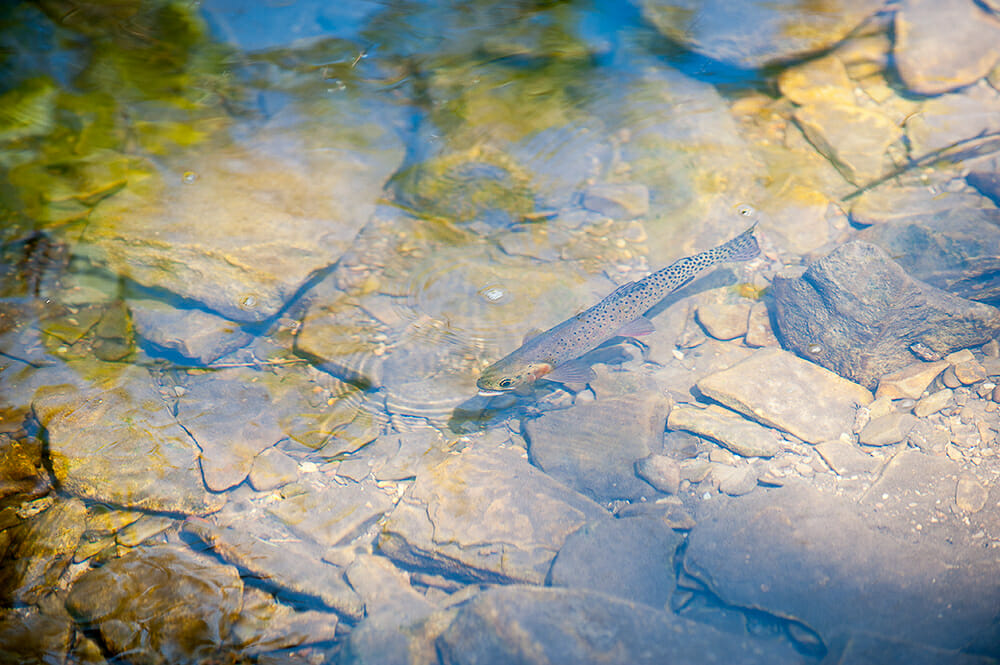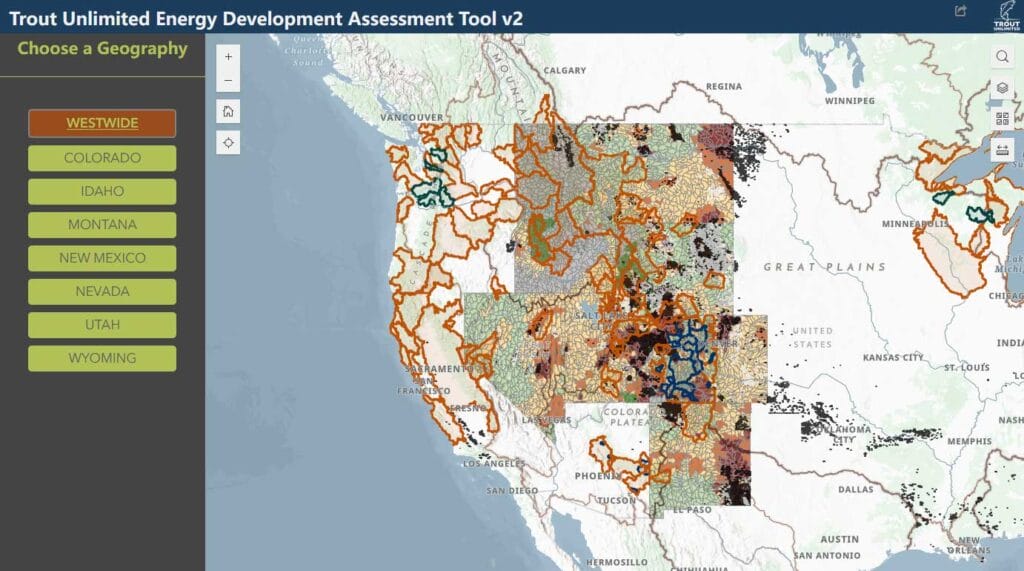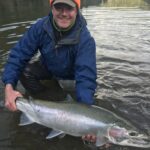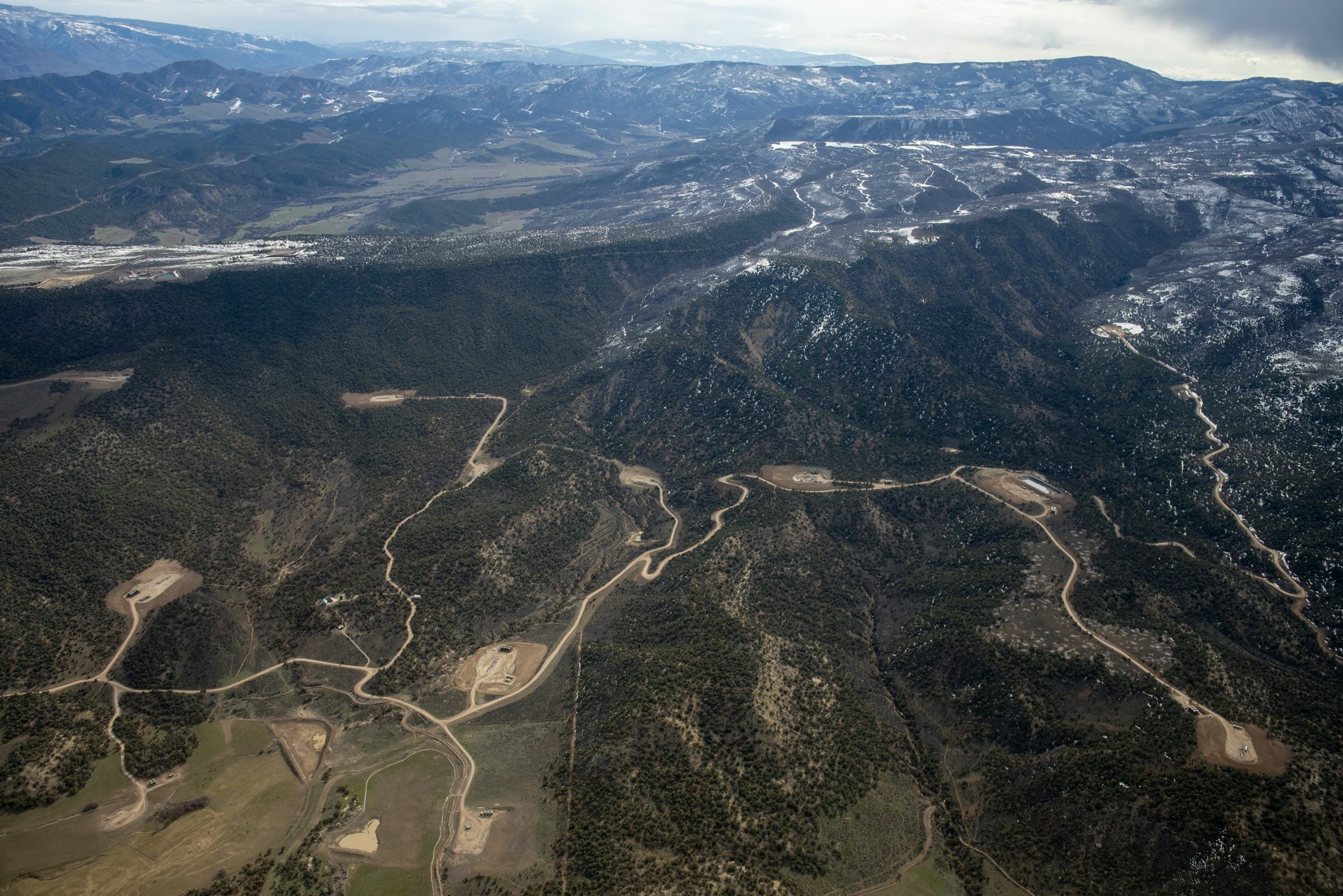
Overview
Trout Unlimited’s efforts to balance coldwater conservation with responsible energy development date back more than a decade. TU’s leadership in the effort to protect the Wyoming Range represents one of the best examples of anglers and hunters bringing people together from across the political spectrum for a common goal to protect public lands. In 2009, TU led a coalition of hook and bullet organizations and businesses, dubbed the Sportsmen for the Wyoming Range, worked with U.S. Senator John Barrasso to pass the Wyoming Range Legacy Act. This historic bill permanently protected 1.2 million acres of the Wyoming Range from future oil and gas development. The law also allowed individuals and organizations to buy and retire some 75,000 acres in the Bridger-Teton National Forest already leased for oil and gas development to willing sellers.
During the 117th Congress a much needed update tomodernize oil and gas policies were included in the Inflation Reduction Act of 2022 (IRA), including a new lease nomination fee, elimination of leases offered non-competitively and increased royalty rates and minimum bids.
These policies reduced impacts to fish and wildlife, helped protect water resources, and affirmed our country’s commitment to balanced multiple use public lands management.
The BLM codified these changes through its Fluid Mineral Leases and Leasing Process Rule in April 2024, marking the first comprehensive update to federal onshore oil and gas leasing regulations since 1988. These reforms modernized leasing practices, reduced fish and wildlife conflicts, and better protected fish and wildlife habitat while ensuring responsible energy development.
By steering leasing away from ecologically sensitive areas and enforcing stronger financial and operational accountability, the BLM is better positioned to safeguard fish and wildlife populations, including sensitive native and wild trout habitat and big game herds.
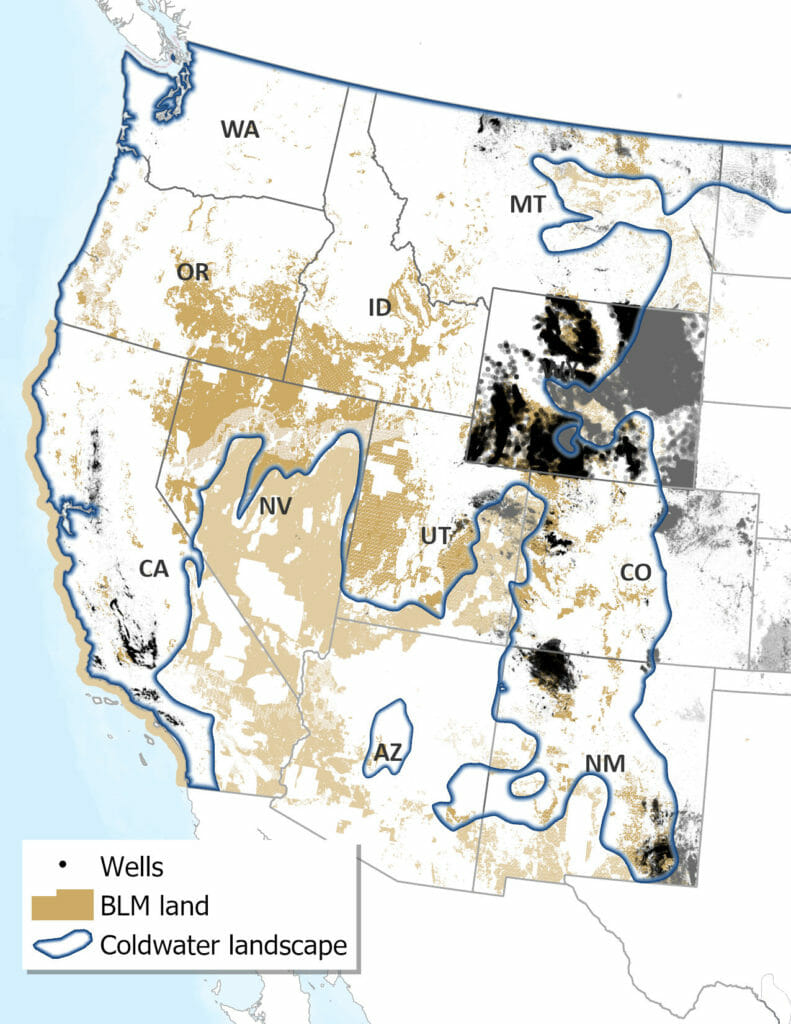
How the One Big Beautiful Bill Impacts Native and Wild Trout
The One Big Beautiful Bill (OBBB), signed into law in 2025, significantly reshaped federal oil and gas leasing—and raised serious concerns for native and wild trout conservation. The bill mandates lease sales in all major producing states, including trout-rich regions like Wyoming and Montana opening over 200 million surface acres for access to industry. Another concerning shift is the re-instatement of non-competitive leasing and the elimination of the lease nomination fee. These changes undermine fiscal responsibility and threaten the ecological integrity of public lands—especially coldwater ecosystems vital to native and wild trout. Collectively these rollbacks may incentivize speculative leasing and increase development pressure in sensitive watersheds, including those critical to native and wild trout.
What This Means for Trout
Native and wild trout like cutthroat, bull, and redband trout rely on clean, cold, connected streams. Recent changes compromise decades of conservation progress by prioritizing energy development over ecological resilience.
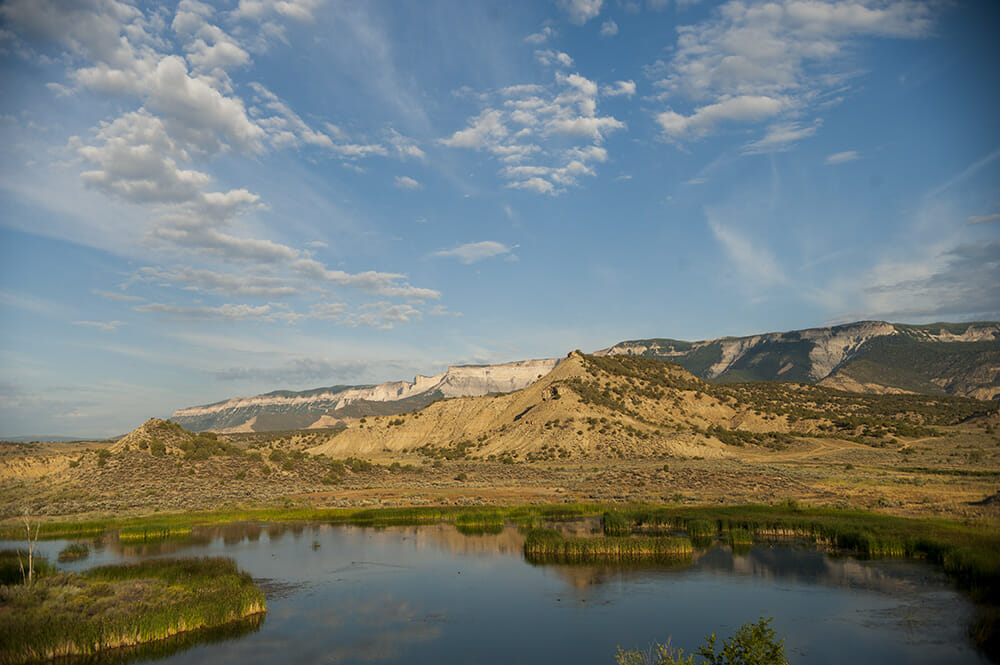
As of January 2025, more than 81% of BLM-managed public lands are available for oil and gas leasing, our analysis shows that only 23% of those lands have moderate to high development potential. This disconnect highlights the need for a more strategic approach to leasing—one that prioritizes resource value and ecological integrity.
Leasing should be focused on areas with recoverable reserves that offer clear economic benefit to the American public and to industry—not in landscapes that support sensitive fish and wildlife habitat, including native and wild trout populations.
Native trout have already been extirpated from much of their historic range, making the protection of remaining aquatic habitat all the more urgent. Surface development within sensitive watersheds, especially near riparian zones, wetlands, and coldwater streams, can degrade water quality, fragment habitat, and reduce the resilience of aquatic systems—particularly as droughts, floods, and temperature extremes intensifies.
By aligning energy development (both traditional and renewable sources) with conservation priorities, we can ensure that native and wild trout and other wildlife continue to thrive—while supporting a sustainable economy and responsible use of public lands.
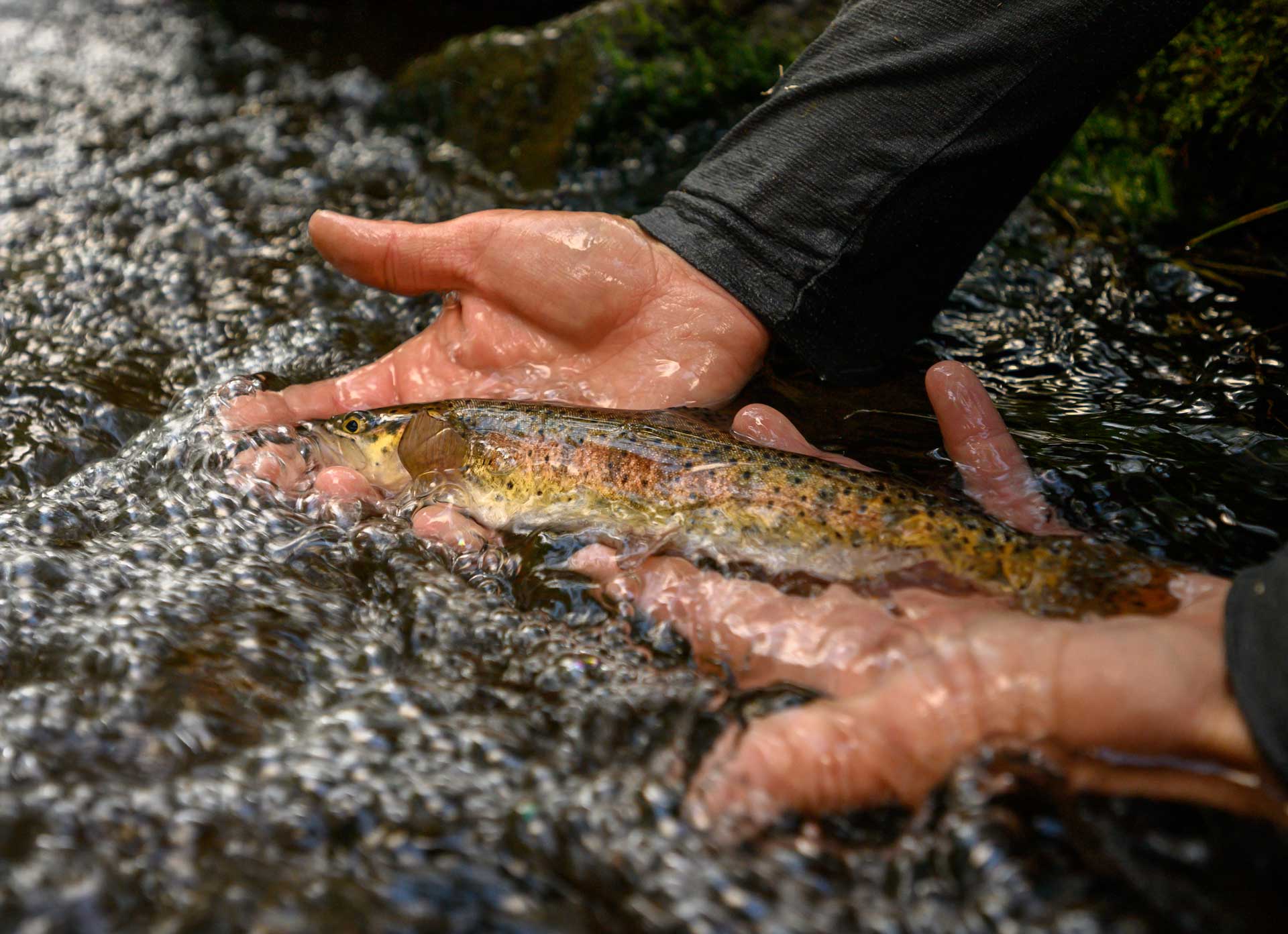
In collaboration with the National Wildlife Federation and Rocky Mountain Wild, Trout Unlimited released a report showing how the practice of selling oil and gas leases on public lands with little or no potential for development wastes limited land management agency resources and threatens big game species, native and wild trout populations, and sage grouse habitat.
Solution
Public lands are essential to sustaining our hunting and angling traditions. Working together with industry, urban and rural communities, and federal, state, and local governments, we can find common ground to improve polices and advance solutions for federal energy development programs. We will continue to advocate for smart, balanced policies that:
- Reflect the true value of public resources and ensure fair returns to taxpayers.
- Prioritize leasing reforms that protect fish and wildlife habitat, including no-leasing buffers around high-value aquatic ecosystems.
- Invest royalty revenues in watershed resilience, including culvert upgrades, riparian restoration and fish passage for coldwater fisheries.
Responsible energy development and fish and wildlife conservation need not be mutually exclusive but achieving both requires smart, balanced policies rooted in science, stewardship and common sense.
Our goal is to bring durable common-sense reforms to oil and gas leasing and development that:
- Provide regulatory certainty for industry while upholding environmental safeguards.
- Avoid or mitigate stressors on coldwater fisheries and their watersheds, including sedimentation, thermal pollution, and habitat fragmentation.
- Protect high-value aquatic ecosystems through strategic siting, seasonal restrictions, and science-based lease stipulations.
- Sustain a thriving economy by ensuring responsible use of public lands and reinvesting revenues into habitat restoration and local, community-based conservation programs.
Oil and gas reform news View more

A long overdue update: bringing the federal oil & gas program into the 21st century
It is time to update our oil and gas policies – our public lands, waters, wildlife, and communities depend on it – and there is already overwhelming public support for…
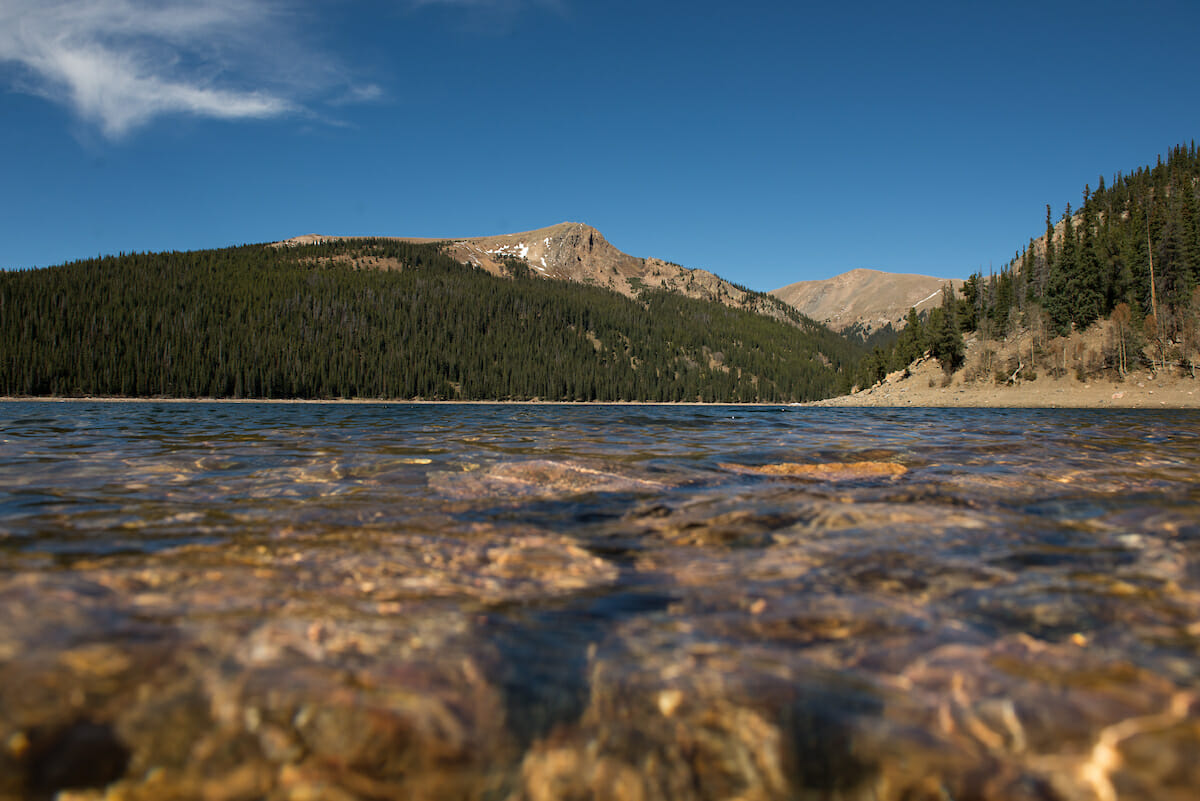
South Park – not the TV show – goes for gold in new resource management plan
After eight years of waiting, new plan in Colorado offers insight into the potential future of public lands management across the West
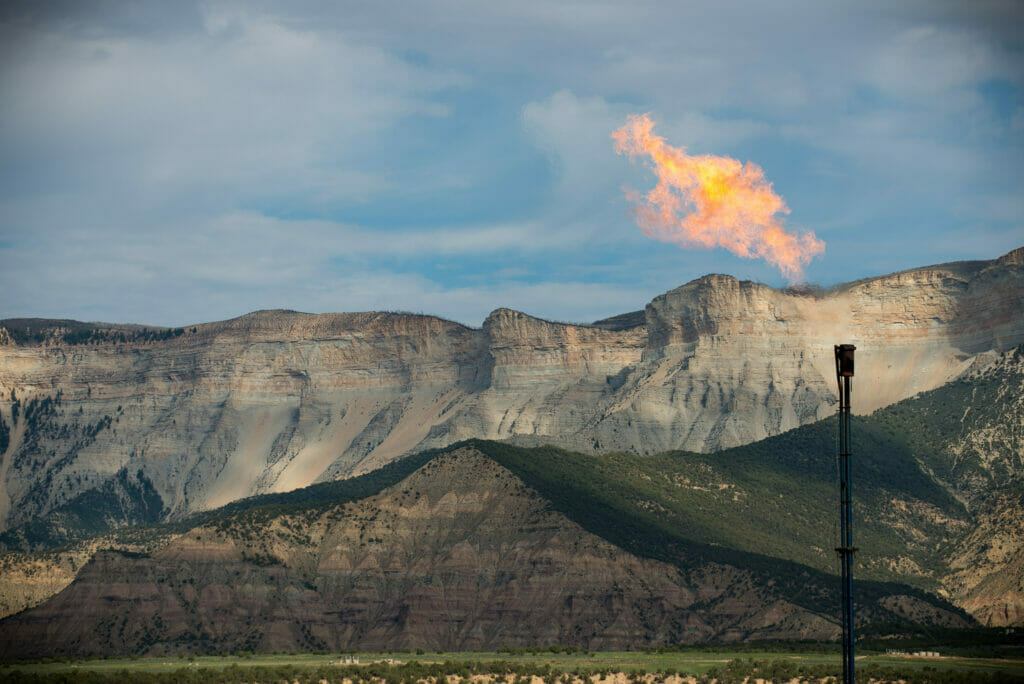
BLM proposes saving the best of the West through oil and gas leasing reform
